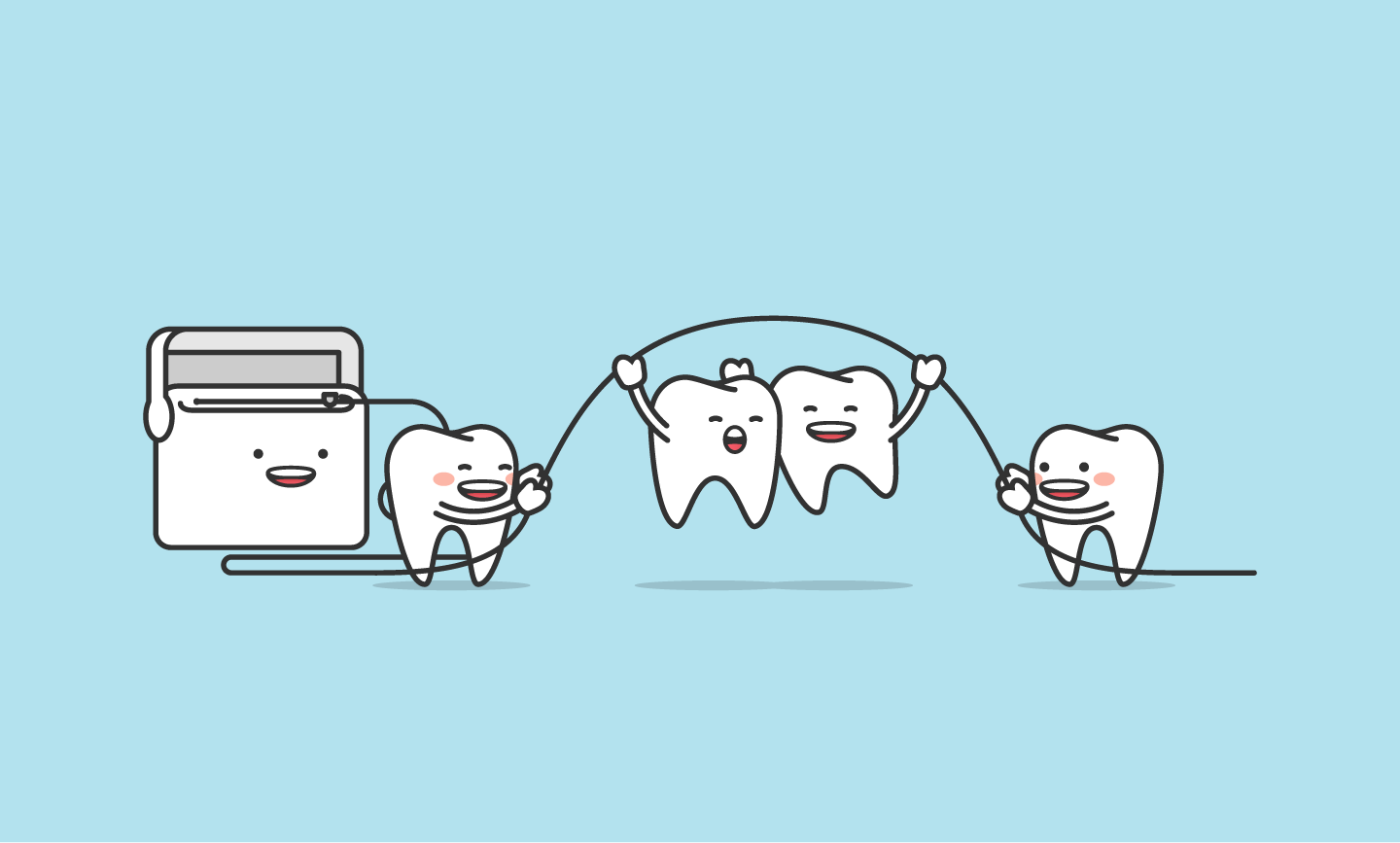Following on from our recent post about 4 Tips for Better Brushing, today we want to talk about flossing – a vital and often overlooked part of your dental hygiene routine
1. Why is flossing important?
Flossing removes food, bacteria and plaque from between your teeth; reducing your chances of bad breath, gum disease, tooth decay. As almost half of your teeth’s surface area is in the gaps between them, without flossing you are effectively only cleaning half of your teeth.
2. How should you floss your teeth?
Below are three pointers for getting the most out of flossing, but if you are unsure about anything, please make a booking for a consultation with our friendly dentist Dr. Dharti Thaker.
- Break off about about 45m of dental floss. Wind most of the floss around both of your middle fingers, leaving about 5cm of floss resting between your index fingers and thumbs for your teeth.
- Clean the side of one tooth, then when you reach the top of the tooth, arc the floss back over and down the side of the facing tooth in a c shape. Take your time, be gentle and don’t glide the floss into the gum itself as this could scratch or bruise your gums.
- Repeat the above steps on each tooth, using a new section of floss for each.
3. I don’t like using floss, is there something else I can use?
If you can’t or don’t like using floss then the good news is that there are a range of alternatives available such as floss threaders and floss picks which can help you keep your whole mouth clean without fuss and bother of floss.
4. How often should I floss?
If we haven’t made it clear by now, flossing is an essential part of your oral health routine, meaning that you should be flossing at least once a day for about 2-3 minutes.
5. Should I floss before or after I brush?
Ideally, you should be flossing before you brush.
When you brush, then floss it can mean that any food, plaque, or bacteria released by flossing remains in your mouth.
However, when you floss first and then brush, you will be ensuring that you’re removing these particles from the mouth. Meaning less dental plaque in your mouth, and a lower risk of developing gum disease.
6. When should kids start flossing?
Until they are 10, a parent should be flossing a child’s teeth as younger children may not have the ability and dexterity to floss effectively. They should start cleaning between their teeth as soon as they have two.
7. Do I need to floss if I have braces?
Yes, if you have braces flossing is even more important as there are more areas for plaque, bacteria and food to build up. It is recommended however to use a floss threader or interdental brushes as opposed to normal dental tape.
If you have braces and want advice about flossing or any other area of your dental health, please make an appointment with us or your orthodontist.
In Conclusion
Keeping your mouth and teeth healthy requires more than just brushing. You should also be flossing correctly and before you brush at least once a day to be sure that you are removing bacteria, plaque and food from between your teeth. You’ll lower your risk of gum disease, tooth decay and improve your breath.
Make sure you also schedule professional dental cleanings at least twice a year!
If you have any questions about flossing or any other area of your dental health, please call us to book a consultation with Dr. Dharti on 02 6624 5494.

